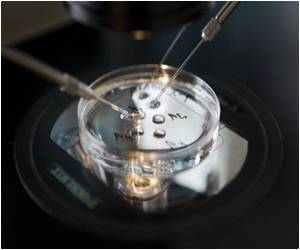
If the egg is missing a chromosome or has an extra chromosome, it is an abnormal or aneuploid egg.
This condition is referred to as aneuploidy and the problem only gets worse as women age.
Cells, known as cumulus cells surround oocytes. Cumulus cells regulate and assist the process of egg maturation.
In this study, Yale Fertility Center director Pasquale Patrizio, M.D., and Dagan Wells of the University of Oxford analysed genes expressed in the cumulus cells.
They were able to recognize a set of genes that are less active in cells that are associated with abnormal eggs.
Advertisement
"The identification of these genes in cumulus cells can serve as a novel, non-invasive marker to identify abnormal oocytes and thus ultimately improve IVF success rates," said Patrizio, professor in the Department of Obstetrics, Gynecology and Reproductive Sciences at Yale.
Advertisement
"This finding opens up the possibility of a safe, effective, and inexpensive way of identifying healthy eggs, potentially lowering the risks of miscarriage and Down syndrome," said Wells.
"By conducting these tests before eggs are fertilized, ethical concerns about analysis of human embryos are avoided," he added.
This study has been published in the journal Human Reproduction.
Source-ANI












